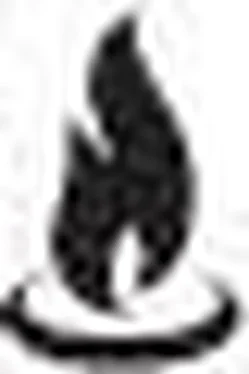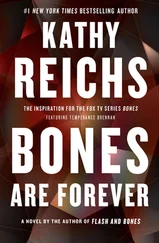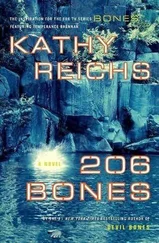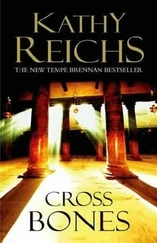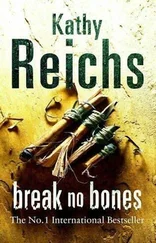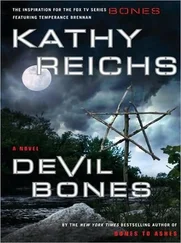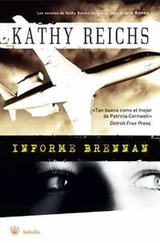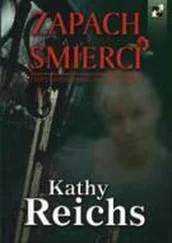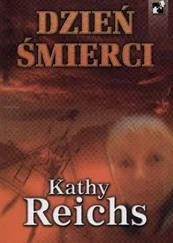Kathy Reichs - Bones to Ashes
Здесь есть возможность читать онлайн «Kathy Reichs - Bones to Ashes» весь текст электронной книги совершенно бесплатно (целиком полную версию без сокращений). В некоторых случаях можно слушать аудио, скачать через торрент в формате fb2 и присутствует краткое содержание. Жанр: Старинная литература, на английском языке. Описание произведения, (предисловие) а так же отзывы посетителей доступны на портале библиотеки ЛибКат.
- Название:Bones to Ashes
- Автор:
- Жанр:
- Год:неизвестен
- ISBN:нет данных
- Рейтинг книги:5 / 5. Голосов: 1
-
Избранное:Добавить в избранное
- Отзывы:
-
Ваша оценка:
- 100
- 1
- 2
- 3
- 4
- 5
Bones to Ashes: краткое содержание, описание и аннотация
Предлагаем к чтению аннотацию, описание, краткое содержание или предисловие (зависит от того, что написал сам автор книги «Bones to Ashes»). Если вы не нашли необходимую информацию о книге — напишите в комментариях, мы постараемся отыскать её.
Bones to Ashes — читать онлайн бесплатно полную книгу (весь текст) целиком
Ниже представлен текст книги, разбитый по страницам. Система сохранения места последней прочитанной страницы, позволяет с удобством читать онлайн бесплатно книгу «Bones to Ashes», без необходимости каждый раз заново искать на чём Вы остановились. Поставьте закладку, и сможете в любой момент перейти на страницу, на которой закончили чтение.
Интервал:
Закладка:
“Did she?”
“Let me go on. This analysis was especially interesting, since the K poems were composed by a French native speaker writing in English. As any foreign language teacher knows, you try to speak a second language using the linguistic system you already know, your native tongue. Until you get good, your native language bleeds through into your acquired one.”
I thought of my own use of French. “That’s why we have accents. And funny sentence structure. And word choice.”
“Exactly. For your analysis, as I worked through all the poems, when I spotted interesting passages, I put them up for split-screen comparison. On one side, I placed the poems as they are. On the other side, I altered the poems to reflect what a French speaker may have been trying to communicate in English, but failing because she was incorrectly translating from French, her first language, and using false cognates. If the overall coherence of the poem improved due to my changes, I took that as evidence the writer was perhaps Francophone. Do you want me to take you through some examples?”
“Bottom line.”
“It’s pretty obvious that both the K and Q poems were written by a native French speaker with limited formal schooling in English.”
I felt a hum of excitement.
“Next, I looked for idiosyncratic rhetorical devices common to both the K and the Q poetry, and any statistically significant skewing of vocabulary or grammar. You with me?”
“So far.”
“Listen to these lines from a K poem:
“Late in the morning I’m walking in sunshine, awake and aware like
I have not been before. A warm glow envelops me and tells all around,
‘Now I am love!’ I can laugh at the univers for he is all mine.”
The words rising from my past caused a constriction in my chest. I let Rob go on.
“Now listen to these lines from a Q poem:
“Lost in the univers, hiding in shadow, the woman, once young, looks
Into the mirror and watches young bones returning to dust.
“In both the K and the Q, the author meters in dactylic hexameter.”
“The same device Longfellow used for ‘Evangeline.’ My friend loved that poem.”
“Dactylic hexameter is common in epic poetry. So in itself the similar metering is not particularly meaningful. But of great interest is that throughout these two K and Q samples, similar mistakes appear consistently. And throughout both, the word ‘universe’ lacks the final e. ”
“ Univers. The French spelling.”
“ Oui. Now let’s go back to geography. Your friend was Acadian from New Brunswick. She spent time in the South Carolina Lowcountry. Listen to the title poem from the Q book, Bones to Ashes. ”
“What am I listening for?”
“Regional dialect. This Q poem contains the motherlode.”
Rob read slowly.
“Laughing, three maidens walk carelessly, making their way to the river.
Hiding behind a great hemlock, one smiles as others pass unknowing
Then with a jump and a cry and a laugh and a hug the girls put their
Surprise behind them. The party moves on through the forest primeval
In a bright summer they think lasts forever. But not the one ailing.
She travels alone and glides through the shadows; others can not see her.
Her hair the amber of late autumn oak leaves, eyes the pale purple of dayclean.
Mouth a red cherry. Cheeks ruby roses. Young bones going to ashes.”
“Same metering,” I said.
“What about vocabulary? You’ve spent time in New Brunswick and South Carolina?”
“The phrase ‘forest primeval’ is straight out of Longfellow.”
“And refers to Acadia. At least in ‘Evangeline.’ What else?”
I looked at my jottings. “‘Dayclean’ is a Gullah term for dawn. And in the South, ‘ailing’ is colloquial for being ill.”
“Exactly. So these two together point to South Carolina.”
A poet with ties to Acadia and South Carolina. A poet influenced by Longfellow’s “Evangeline.” A Francophone writing in English. Talk about a linguistic fingerprint.
Sweet Jesus. Harry was right. Bones to Ashes was written by Évangéline.
A flash fire of anger seared through my brain. Another lie. Or at best an evasion. I couldn’t wait to confront Obéline.
Rob spoke again.
His words sent ice roaring through my veins.
38
“WAIT.” I SPOKE WHEN MY LIPS COULD AGAIN FORM WORDS. “Back up.”
“OK. I said that a speaker’s mother tongue often comes to the fore when he or she is under stress. Then you’re more likely to use false cognates because emotion is boiling through your native language. It may happen in these lines because of the terrible feelings of viewers, because of the unimaginable yet real images on TV of burning victims leaping to their deaths.”
“Read the lines again.” It wasn’t possible. Rob couldn’t have said what I thought I’d heard.
Rob repeated what he’d read.
“I see the terror that comes from hate
Two towers fall while men debate
Oh where is God? Even brave people, chair, blessed by fire,
Jet to death!”
My heart was banging so hard I feared the sound would carry across the line. Rob continued talking, oblivious to the emotions raging inside me.
“‘Chair, blessed by fire’ isn’t very coherent in English, but the medium is poetry, and in poetry the flow of information and the frames of reference elicited are expected to be murky and different than in everyday speech. Except in these lines it is almost everyday speech, at least in French. Chair is flesh. And se jeter, here the verb ‘jet,’ roughly means ‘to throw yourself.’ And blesser means ‘to injure.’ In French this verse means ‘Oh where is God? Even brave people, flesh wounded by fire, throw themselves to their deaths!’”
“You’re certain it’s a reference to nine-eleven and the World Trade Center?” Impossibly calm.
“Has to be.”
“And you have no doubt the poems in Bones to Ashes were written by my friend Évangéline.”
“None. Can I finish explaining how I arrived at that conclusion?”
“I have to go now, Rob.”
“There’s more.”
“I’ll call you.”
“You OK?”
I clicked off. I knew it was rude and ungrateful. Knew I would later send flowers or cognac. At that moment I didn’t want more talk.
The poems were all by Évangéline, and some were recent.
Down the hall, a door opened. The argument between Homer and Marge grew louder.
At least one poem was written after September 2001.
The argument concerned a trip to Vermont. Homer wanted to drive. Marge preferred flying.
I sat motionless, paralyzed by the implications of Rob’s findings.
Évangéline was alive in 2001. She had not been murdered decades ago.
Bart and Lisa joined the debate, advocating a motor-home holiday.
Obéline had lied about Évangéline dying in 1972. Why?
Was she truly mistaken? Of course not, she had the poems. She must have known approximately when they were written.
A murmured giggle augered into my musings. I looked up. The room was empty, but a shadow crossed the floor at the doorway.
“Cecile?” I called out softly.
“Can you tell where I am?”
“I think”—I paused, as if unsure—“you’re in the closet.”
“Nope.” She hopped into the doorway.
“Where is Obéline?”
“Cooking something.”
Читать дальшеИнтервал:
Закладка:
Похожие книги на «Bones to Ashes»
Представляем Вашему вниманию похожие книги на «Bones to Ashes» списком для выбора. Мы отобрали схожую по названию и смыслу литературу в надежде предоставить читателям больше вариантов отыскать новые, интересные, ещё непрочитанные произведения.
Обсуждение, отзывы о книге «Bones to Ashes» и просто собственные мнения читателей. Оставьте ваши комментарии, напишите, что Вы думаете о произведении, его смысле или главных героях. Укажите что конкретно понравилось, а что нет, и почему Вы так считаете.
